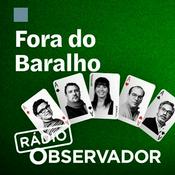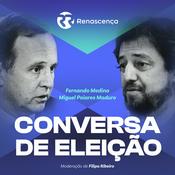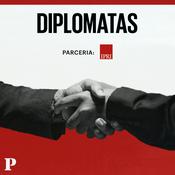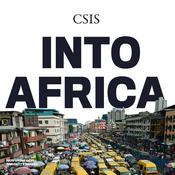31 episódios
- When French citizens took to the streets during the recent Bloquons Tout ("Block Everything") protests, they were united in opposition to the proposed national budget. But beyond that shared frustration, what did they actually want? This is the question plaguing modern protest movements. We know what people oppose, but the mechanisms to understand what they support, and to find consensus amid that complexity, remain frustratingly elusive.
In this episode, Executive Director Jess Scully sits down with Yuting Jiang, CEO and co-founder of Agora Citizen Network. Unlike mainstream anti-social media that pulls us into tribal camps, Agora is prosocial, using machine learning to identify shared beliefs and bridge statements that unite rather than divide. Inspired by Polis, Agora is a space where citizens can move beyond broadcasting grievances to actually deliberating solutions together.
Yuting walks us through a consultation during the French protests with over 200 participants, in which Agora revealed a nuanced opinion landscape showing some key points of consensus, while exposing meaningful disagreements about how radical their calls for reform should be.
As RadicalxChange launches our own consultation on Agora, this conversation explores how we might build the prosocial media infrastructure that democracy actually needs.
Participate in our community conversation on Agora: https://agoracitizen.network/feed/conversation/4OcpxQ
Host: Jess Scully
Guest: Yuting Jiang
Producer: Jack Henderson
Feedback or ideas for future episodes? Email us at [email protected].
Connect with RadicalxChange Foundation:
Website
X
YouTube
LinkedIn
Discord
BlueSky - Executive Director Jess Scully speaks with Takahiro Anno, an AI engineer, science fiction writer and newly elected member of Japan's House of Councillors. Anno shares his remarkable journey from software engineer to politician, driven by a desire to "fix the bugs" in society and democracy.
Anno's political rise has been rapid. In his first-ever campaign for Tokyo Governor in July 2024, Anno received over 150,000 votes, an unprecedented milestone for a candidate in their 30s with no prior political experience. Following this success, he founded Team Mirai in May 2025 and, just months later, won a seat in Japan's national parliament with 2% of the vote, securing a six-year term.
The conversation explores his innovative "broad listening" approach, which challenges the traditional "broadcasting" model of politics. Anno treated his campaign like an open-source software project, publishing policies on GitHub and openly accepting "pull requests" from citizens. During the Tokyo campaign, his team received over 100 proposals and merged more than 80, continuously updating their 100-page policy book just like open-source software.
Anno also details the technology that made this possible. His team created "AI Anno," an AI avatar hosted on YouTube Live that could engage voters 24/7, bypassing legal restrictions limiting human campaigning to 8 a.m. to 8 p.m. The avatar enabled two-way communication: citizens could see each other's questions, making it easier to participate, while Anno's team analyzed conversation logs to identify and address common concerns.
For his national campaign, Anno's team scaled participation dramatically using Model Context Protocol (MCP). Citizens could simply converse with an AI, which would automatically generate GitHub pull requests on their behalf, removing technical barriers entirely. This approach gathered over 10,000 proposals, 100 times more than his first campaign in Tokyo.
Critically, Anno made all of these tools open source, embracing openness as a core value and the most practical way for a small party to create systemic change. Politicians from other parties have already committed to using these tools in future campaigns.
Jess and Anno discuss his mission for the next six years: using technology to enable large-scale deliberative democracy. While many fear AI's potential to erode democracy through deepfakes and misinformation, Anno provides a powerful, working example of how these tools can make democracy more transparent, participatory, and responsive to citizens' voices.
Host: Jess Scully
Guest: Takahiro Anno
Producer: Jack Henderson
Feedback or ideas for future episodes? Email us at [email protected].
Connect with RadicalxChange Foundation:
Website
X
YouTube
LinkedIn
Discord
BlueSky - Join new host and Executive Director Jess Scully for a critical conversation on digital resilience, democracy, and reconstruction with Max Semenchuk, Program Director of the Web3 Institute in Ukraine.
In this episode, Max explains why, even in the midst of full-scale war, digital innovation has become a critical priority for the Ukrainian government. He provides context on the immense challenges facing the nation, including population decline from 52 million to 37 million and the pressures of war on democracy. The core mission, he argues, is not just to survive, but to "build a country desirable for the young to stay or for others to return," using Web3 to contribute to better coordination and new institutions.
Max shares his personal journey from software entrepreneur to civic technologist, catalyzed by the 2016 DAO experiment and accelerated by applying DAO principles during the COVID-19 crisis. This eventually led him to advise Ukraine's Ministry of Digital Transformation on crypto regulation and Web3 strategy.
The conversation explores Ukraine's remarkable digital transformation: rising from 57th to 1st place globally in the UN's e-participation index between 2022 and 2024. Max discusses groundbreaking platforms like Diia (digital ID), Prozorro (transparent public procurement) and Dream (reconstruction project coordination), showing how decentralized infrastructure strengthens democratic resilience even under extreme conditions.
Max also discusses the challenges of translating "radical" Web3 ideas to government officials who often confuse the technology with cryptocurrency, and how the Web3 Institute is bridging that gap through education, practical experience and building "minimum viable consortia" that bring together business, academia and government.
Tune in to learn how decentralized digital infrastructure is supporting Ukraine's resilience and to hear about the upcoming IEEE Ukrainian DLT Forum: Rebuidl, where RadicalxChange is co-hosting a virtual event on "The Future of Digital Democracy: Learning from Ukraine."
Feedback or ideas for future episodes? Email us at [email protected].
Connect with RadicalxChange Foundation:
Website
X
YouTube
LinkedIn
Discord
BlueSky - Some people might call Jonathon Keats an artist, but he calls himself an experimental philosopher. His body of work explores the way that human life intersects with political and economic systems. His first major work, in the year 2000, involved sitting in a chair thinking for hours, and then selling his thoughts to patrons at prices calculated on the basis of their income. He once copyrighted his own mind as a sculpture. He created a ringtone based on John Cage’s famous piece, 4’33”, which is four minutes and thirty-three seconds of complete silence. He built a pinhole camera that takes photographic exposures lasting 100 years. In Berkeley, California, he built a temple for the worship of science. Recently, he has been involved in efforts to formalize rights of nature.
Jonathon challenges us to look carefully at the assumptions built into our markets, our democracies and our technologies, and constantly seems to do it in ways that seem abstract at the time, but end up prefiguring political or cultural issues years or decades before they erupt. He’s a wonderful guide to this territory, and to the big questions it involves.
In this conversation Matt and Jonathon discuss the philosophy of timekeeping. They consider the connectedness and the alienation of being on universal atomic time, the promise of alternative systems such as the river clock, and how different notions of timekeeping influence our understanding of democracy and nature.
Jonathon Keats is an experimental philosopher, artist and writer. He is currently a fellow at the Berggruen Institute, a research fellow at the Long Now Foundation, a research associate at the University of Arizona, principal philosopher at Earth Law Center and an artist-in-residence at Hyundai, the SETI Institute and Flux Projects. His most recent book is “You Belong to the Universe: Buckminster Fuller and the Future” (Oxford University Press).
Mentioned:
Alaska RiverTime
If you have feedback or ideas for future episodes, email us at [email protected].
Host: Matt Prewitt
Guest: Jonathan Keats
Producer: Jack Henderson
Feedback or ideas for future episodes? Email us at [email protected].
Connect with RadicalxChange Foundation:
Website
X
YouTube
LinkedIn
Discord
BlueSky - In today’s episode, renowned academic and legal scholar Professor Joseph H.H. Weiler speaks with Matt about The Trial of Jesus – connecting the historical event as a lens for understanding justice, religious pluralism, and democracy. The examination leads us through the limits of state neutrality in matters of faith, the balance between freedom of and from religion, and the evolving role of digital platforms. Professor Weiler shares perspectives from his extensive legal scholarship while reflecting on the intersection of theology, democracy, and technological change in our modern world. An incredibly poignant episode that is a must-listen.
Note: This episode was recorded in Dec 2024.
Links & References:
References:
The Trial of Jesus - First Things | By J.H.H. Weiler
Sanhedrin trial of Jesus - Wikipedia
The Christian Europe by J.H.H. Weiler | Una Europa cristiana - Ediciones Encuentro
“La Rochefoucauld voice in our ear” | François de La Rochefoucauld (writer) - Wikipedia
Nostra aetate [EN]
Second Vatican Council - Wikipedia
“imitatio Dei” | Imitation of God - Wikipedia
Lautsi v. Italy - Wikipedia
"Laïque” (FR) = “secular”
European Convention on Human Rights
Statement of Micah | Why Micah 6:8? | Westmont College
Guarini Colloquium on Legal Controls of Digital Platforms | NYU School of Law
SALVIFIC | English meaning - Cambridge Dictionary
Voltairean - Wiktionary, the free dictionary
Olga Tokarczuk - WikipediaThe Books of Jacob by Olga Tokarczuk - Wikipedia
The Books of Jacob by Olga Tokarczuk: 9780593087503 | PenguinRandomHouse.com
Telos - Wikipedia “goal”
Bios:
J.H.H. Weiler is University Professor at the NYU Law School and a Senior Fellow at the Center for European Studies at Harvard. He served previously as President of the European University Institute, Florence. Prof. Weiler is Co-Editor-in-Chief of the European Journal of International Law (EJIL) and the International Journal of Constitutional Law (ICON). Among his Honorary Doctorates there is one in Theology awarded by the Catholic University of America. In 2022, he received the Ratzinger Prize awarded by Pope Francis.
J.H.H.’s Links:
J.H.H. Weiler - Biography | NYU School of Law
Freedom Of and From Religion in Democracies by J.H.H. Weiler | Combinations Magazine by RxC
Matt Prewitt (he/him) is a lawyer, technologist, and writer. He is the President of the RadicalxChange Foundation.
Matt’s Social Links:
ᴍᴀᴛᴛ ᴘʀᴇᴡɪᴛᴛ (@m_t_prewitt) / X
Production Credits:
Produced by G. Angela Corpus.
Co-Produced and Audio Engineered by Aaron Benavides.
Executive Produced by G. Angela Corpus and Matt Prewitt.
Intro/Outro music by MagnusMoone, “Wind in the Willows,” is licensed under an Attribution-NonCommercial-ShareAlike 3.0 International License (CC BY-NC-SA 3.0)
This is a RadicalxChange Production.
Feedback or ideas for future episodes? Email us at [email protected].
Connect with RadicalxChange Foundation:
Website
X
YouTube
LinkedIn
Discord
BlueSky
Mais podcasts de Ciência política
Podcasts em tendência em Ciência política
Sobre RadicalxChange(s)
RadicalxChange Foundation’s Jess Scully speaks with inspiring personalities to explore critical ideas and stories about next-generation political economies.
Sítio Web de podcastOuve RadicalxChange(s), Fora do Baralho e muitos outros podcasts de todo o mundo com a aplicação radio.pt

Obtenha a aplicação gratuita radio.pt
- Guardar rádios e podcasts favoritos
- Transmissão via Wi-Fi ou Bluetooth
- Carplay & Android Audo compatìvel
- E ainda mais funções
Obtenha a aplicação gratuita radio.pt
- Guardar rádios e podcasts favoritos
- Transmissão via Wi-Fi ou Bluetooth
- Carplay & Android Audo compatìvel
- E ainda mais funções


RadicalxChange(s)
Leia o código,
descarregue a aplicação,
ouça.
descarregue a aplicação,
ouça.













